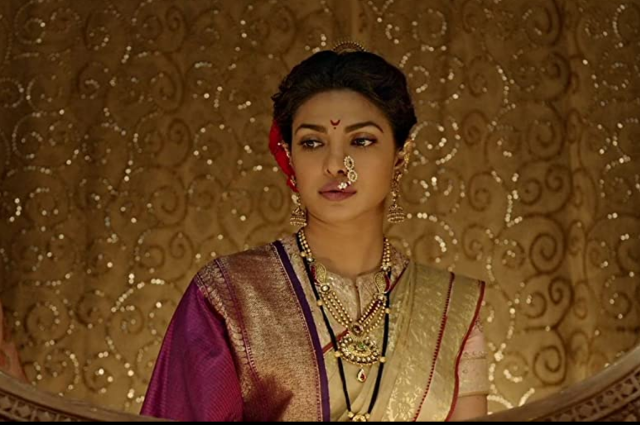Even Before the word feminism came into existence into this world, India had bestowed this right to every girl since her birth, during the medieval period we have witnessed exceptional feminists in form of Queens and Princess who ruled the state with all the wit and valour.
It was the advent of British rule that produced fear in the hearts of many Indians about being proselytised, which made them confine the females within the four walls. Even during this period, there were various female voices that stood against patriarchal society in order to fight for their Motherland. Unfortunately, most of these stories of valour go unnoticed.
One of the underrated feminists of the medieval period is Kashibai Bajirao Ballal, Who was the first wife of BajiRao Ballal, daughter of Mahadji Krishna Joshi and Shiubai. Bajirao was the 7th Peshwa ( Prime minister) of the Maratha kingdom. They both tied the knot during childhood, although Kashibai was just eight years old. It’s been palpably stated that Kashibai used to look after the affairs of the state when Bajirao used to step into battlefields in order to protect the state. Henceforth this gives us a clear picture as to how Kashibai empowered herself with education irrespective of the hurdles laid down by the patriarchal society and has finally emerged as an immensely powerful woman in the pages of history, who has balanced both the palace and state affairs. Irrespective of no strong evidence present, we can still conclude that Kashibai was educated because it is impossible to run state affairs without having basic education. The education received might be from informal sources but she was definitely educated. Bajirao had fought 40 battles, even once he had not lost any battle. This becomes quite apparent that the trust which he had laid on Kashibai to run the state affairs made him focus of battle entirely, the trust which she kept up to, unfortunately, this has been blurred in the pages of history, leading her efforts to be unrecognised.
When Bajirao married Mastani, daughter of Maharaja Chhatrasal and Rumani Bai Begum, Kashibai was shattered at the act of her husband, yet she kept herself stalwart and continued to perform her duties. The feminists of today argue that she had no other choice apart from bowing herself down to the decision of her husband and also pity her at times, but the strong personality of Kashibai can be seen when she decides to take care of Mastaani’s son after the death of both Bajirao and Mastaani. She also empowers him with the right knowledge of what a prince should receive, she neither changes his true identity and this can be done only by a woman, who respects every culture, believes every individual is accountable for their action and holding the child responsible is an act of cowardness, although most of them were against Mastaani, Kashibai still opted to take care of the child, this shows her farsightedness.
In the pages of history, the chapters on Kashibai’s love for Bajirao have been burnt or blurred as the years passed by. Mastaani opts for Sati, while Kashibai decides to take care of the state affairs for a while and latter takes care of Mastaani’s son. Feminism isn’t just supporting another female but supporting the child of the husband’s second wife and empowering him is definitely too a trait of true feminism.
It’s true Kashibai did not revolt, rebel nor raised her voice but she tried seeking strength with her silence trying to make peace in between the two parties. She leaves for sainthood after completing her duties, definitely, she had the choice to leave for sainthood after Bajirao’s death but she decides to uphold the responsibilities. She also acknowledges the marriage of Bajirao and Mastaani irrespective of passing through deep anguish, desolation, and exasperation, she values the relationship of Bajirao and Mastaani as much she valued her relationship with Bajirao, endowing Mastaani with respect. This too can be done only by a true feminist who respects the choice of other women too.
Undoubtedly it can be stated that the steps taken by her are quite subtle but it’s because of these bijou steps that today’s feminists have inherited the basic rights, leading them to create efficacious and authoritative voices. Henceforth it’s very important for us to acknowledge these minuscule steps.

